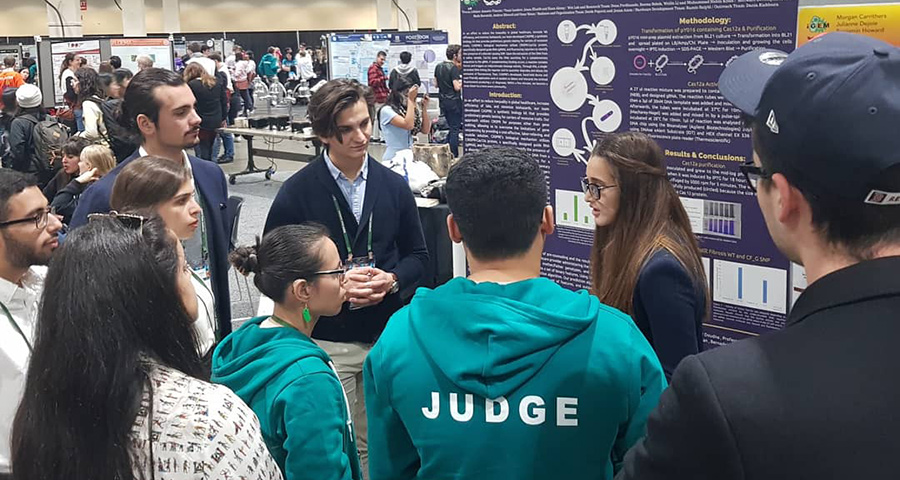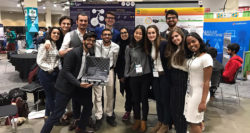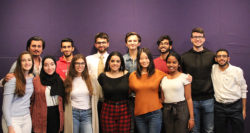
CMU-Q team creates fast, inexpensive screening kit for genetic disease carriers
Interdisciplinary project earns Bronze Achievement at iGEM 2019
A student team from Carnegie Mellon University in Qatar (CMU-Q) created a fast, inexpensive method to test for carriers of genetic diseases like sickle cell anemia and cystic fibrosis. The team presented the kit at the 2019 International Genetically Engineered Machines (iGEM) competition held in Boston, where they were recognized with a Bronze Achievement award.
The faculty advisor for the group, Annette Vincent, commented on the collaboration: “I am so proud of how these students from very different academic programs worked together to make their idea a reality. This is our third year at the iGEM competition and it is our largest, most diverse team yet.” Vincent is the program director for biological sciences at CMU-Q.

The iGEM 2019 team, along with alumna Fatima Amir (center), at the competition in Boston
The project combines biological technique, programmed software, and a specially designed device to create a fast, non-invasive kit for genetic testing. Traditional gene sequencing tests are costly and difficult to access in many parts of the world. This project could lead the way to quick and viable screening method for many genetic diseases.
Joana Khatib is one of the team leaders on the project and a biological sciences student: “This is just a preliminary test, so especially in places where people have limited access to genetic labs, they could do this screen first to see if they might be a carrier. It’s a front line way to raise awareness of genetic diseases.”
Kaan Aksoy, a team leader and computer science student, described the adaptability of the testing kit: “We designed it so the device alone can do all the work. One of our target populations is refugees, and they can still get results if they do not have access to the electronics to run the software. But if you use the device and also connect with the app, we have created a machine learning algorithm that increases the accuracy of the test results.”
The project brought together students from three different academic programs. Biological sciences students included Dona Ferdinando, Dania Kaddoura, Muhammad Nahin Khan, Weilin Li, and Reema Subeh. Students studying computer science included Dorde Popovic, Radu Revutchi, Rameez Saiyid and Omar Sinan. Information systems students included Jinan Azem and Andrew Edward. Al Khalij Commercial Bank (al khaleeji) provided support for the iGEM 2019 team.

Thirteen students from three programs came together for iGEM 2019.
This is the third year that CMU-Q has sent a team to the iGEM competition, which is the largest synthetic biology community and the premiere synthetic biology competition for both university and high school level students. More than 18,000 young scientists and engineers have participated in iGEM as students, instructors, or advisors since the first competition in 2003.
